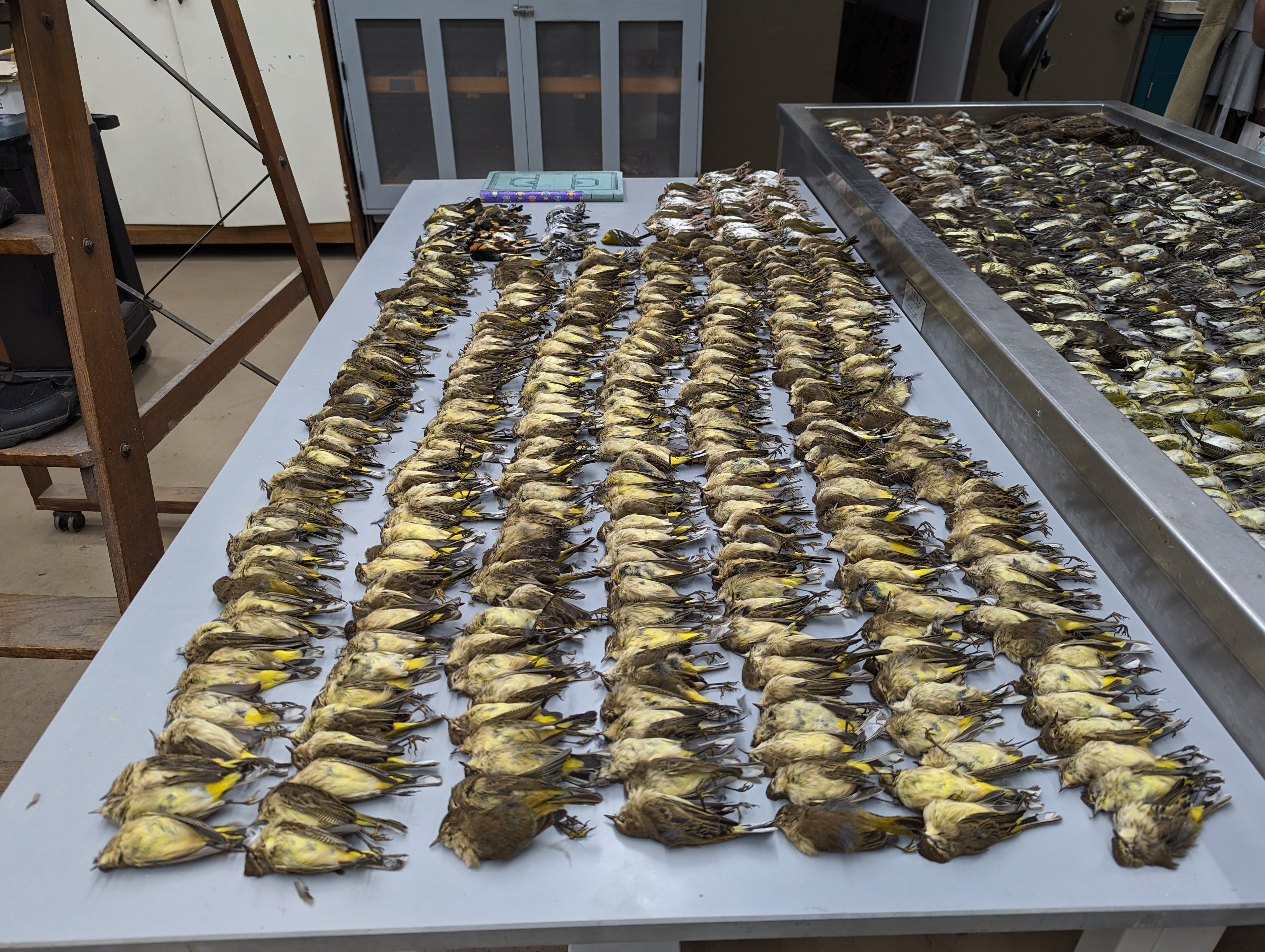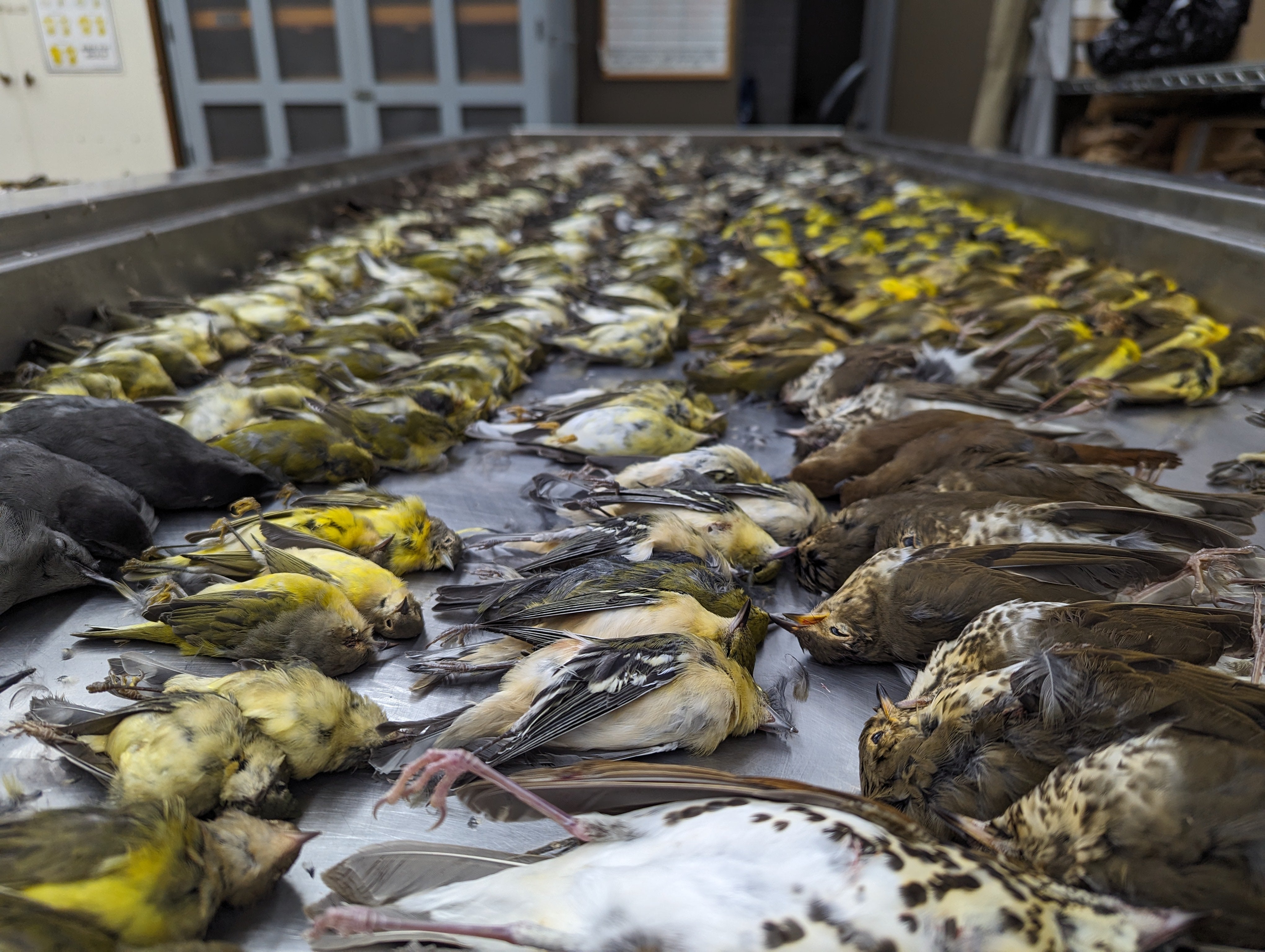Hundreds of migrating birds die after crashing into Chicago buildings
Experts say almost 1,000 birds were involved in shocking incident during major migration in the area
Ornithology enthusiasts in Chicago were left stunned by a “major bird collision” in the city, which has left hundreds of the animals dead.
The incident which occurred earlier this week comes amid a major migration in the area, with adverse weather, glass and high-intensity migration thought to be among the causes.
The Chicago Bird Collision Monitors reported that its volunteers had collected “close to 300 injured birds”, with many more dead, on Thursday alone.
The group’s volunteers work to protect and recover migratory birds killed and injured in the downtown Chicago area each year during spring and autumn migrations.
PhD candidate Taylor Hains, who works at the Chicago Field Museum and assists with bird collection told WTTV News that birds were “still colliding” with windows at the McCormick Place building as rescue operations continued.
The Independent understands that the total number of birds collected on Thursday eventually totalled nearly 900.
David Willard is a retired bird division collections manager at the Chicago Field Museum, where his duties included administering, preserving and cataloguing the museum’s collection of 500,000 bird specimens as well as searching for bird strikes as part of migration research.
He told the Associated Press that the scenes outside McCormick Place was like “a carpet of dead birds at the windows”.
“A normal night would be zero to 15 (dead) birds. It was just kind of a shocking outlier to what we’ve experienced,” Mr Willard said.

“In 40 years of keeping track of what’s happening at McCormick, we’ve never seen anything remotely on that scale.”
A post from BirdCast, an organisation which provides real-time predictions of bird migrations, read: “Our colleagues and friends in the Chicago, Illinois area have sad news about a major bird collision event that occurred last night and this morning, 4-5 October 2023.
“Reports from the area indicate that large numbers of birds died in collisions while major migration was occurring in the area.
“Although details are still emerging, this event appears to be a combination of high-intensity migration, adverse weather conditions for flying, and light and glass – a mix we know too well can be deadly.”

The organisation also urged “all businesses, building owners and private residences, as well as operators of any illuminated structures, to heed lights-out warnings for non-essential lights to be turned off during the migration season.”
The American Bird Conservancy estimates 1 billion birds a year die from colliding with glass, with window strikes known to be an issue in almost every major US city.
Birds do not see clear or reflective glass and do not understand it is a lethal barrier. When they see plants or bushes through windows or reflected in them, they head for them, killing themselves in the process.
Birds that migrate at night, like sparrows and warblers, rely on the stars to navigate. Bright lights from buildings both attract and confuse them, leading to window strikes or birds flying around the lights until they die from exhaustion — a phenomenon known as fatal light attraction
Join our commenting forum
Join thought-provoking conversations, follow other Independent readers and see their replies
Comments
Bookmark popover
Removed from bookmarks